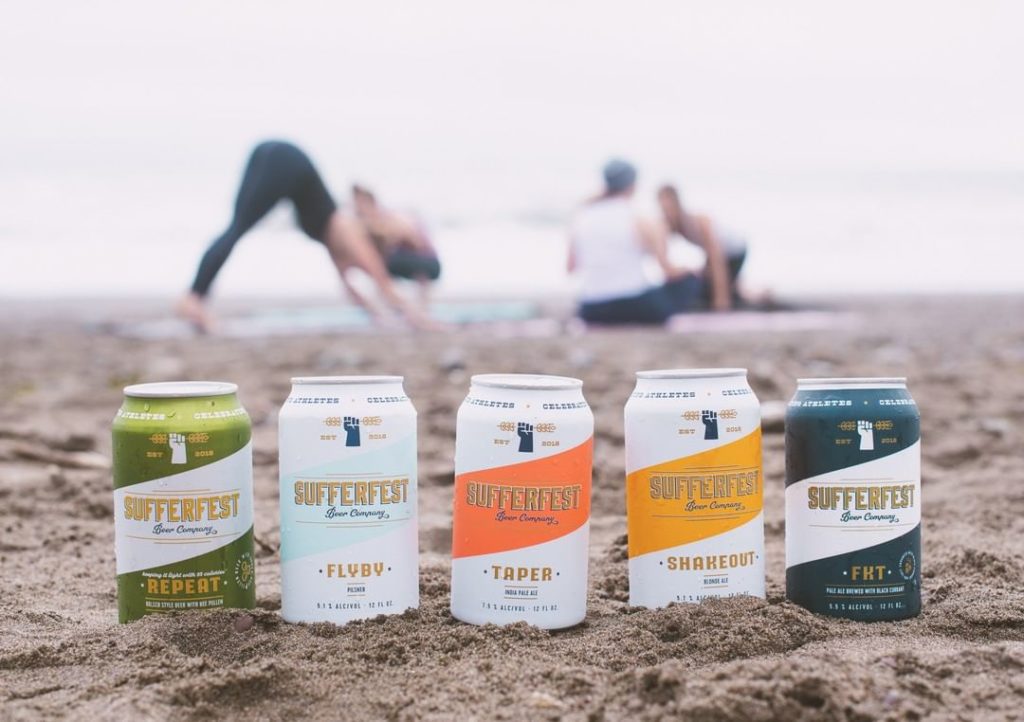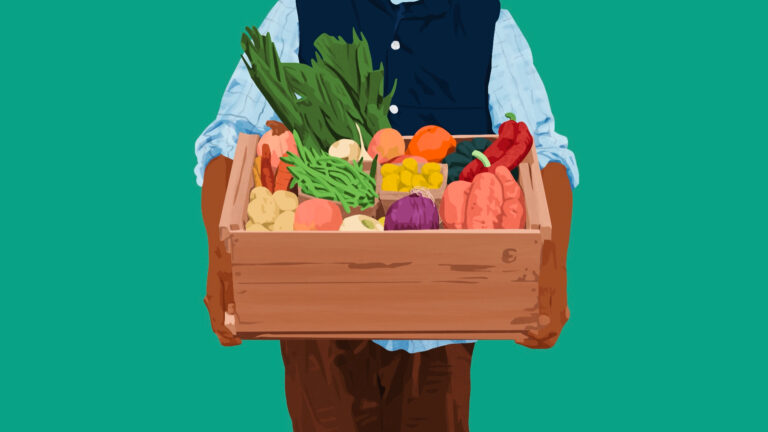Sober Is The New Cool
“Let’s grab drinks!” It’s the go-to refrain of friends everywhere. But nowadays, those drinks might be alcohol-free.
Totaling $250B in the US alone, alcohol is a massive business. But recent developments have signaled disruption:
- 70% of millennials would rather brag about not consuming alcohol than being drunk.
- Between 2015 and 2018, US alcohol consumption declined three straight years, with beer consumption down five consecutive years.
- The global market for nonalcoholic wine and beer is estimated to reach $30B by 2025.
These developments are being driven by a few key factors, including health, wealth, weed, and the acceptance of being sober-ish.
Health. Younger generations are leading the mindful drinking movement. In fact, Nielsen data found that 66% of US Millennials are trying to reduce their alcohol consumption — well above the 47% of all US adults. And their motivation was clear: 41% cited health as the primary rationale with 27% abstaining to lose weight.
Far from an anomaly, Millennials might be the canaries in the coal mine — Gen Z is drinking at lower rates than previous generations.
Wealth. For a generation whose net worth and earnings are less than their parents, running up a pricey bar tab isn’t ideal. And the aforementioned Nielsen data reflects this — 31% of Millennials are drinking less to save money.
Weed. Both the legalization of cannabis and its place in wellness culture could be contributing to a decline in alcohol consumption as more people self-medicate with weed. As evidence, a 2017 study found a 12% drop in alcohol sales in counties with legalized medicinal cannabis (when compared with similar counties without).
Cool factor. From short-lived stints like Dry January or Sober October to lengthier periods of not drinking or drinking less, sober-ish has become the new cool. Less of a definitive choice between drinking and not drinking—or the dichotomy between water and wine—”mindful drinking” is a hashtag-able reason to abstain from alcohol.
In response to these developments, upstart alcohol brands have moved in, providing consumers with more options than ever before. Similarly, bars, restaurants, festivals, and other predictably boozing settings now cater to the sober curious crowd. Likewise, social media, apps, and in-person communities are forming around shared sobriety.
Drink. Newcomers to the beer scene, Sufferfest Beer Company (acquired by Sierra Nevada) and Athletic Brewing Company are red hot. Meanwhile, mainstays like Dogfish Head, Heineken, Sam Adams, and Brooklyn Brewery have released low-alcohol or non-alcoholic beers.
In the same sphere, spiked kombuchas like JuneShine, Flying Embers, and KYLA are gaining steam. Haus and Underwood are innovating in the wine space. Meanwhile, Seedlip (acquired by Diageo), Three Spirit, and MeMento are putting non-alcoholic liquor on the map.
Demand for options outside of alcohol has also given us booze-free cocktails from Curious Elixirs, CBD-infused seltzers like Recess, Higher Mind’s nootropic drink, and an entirely new category in “euphorics” thanks to Kin.
Hang. Sober bars like Getaway, Ambrosia Elixirs, and Listen Bar are now a thing. Daybreaker’s early-morning sober dance parties have popped up in cities around the world. And sober social communities like Club SÖDA NYC create opportunities for people to connect without the pressure to drink.
Recover. Startups like Tempest and Loosid are creating new tools to help people get sober. Unlike Alcoholics Anonymous, a non-profit free to anyone willing to admit they have a drinking problem, new age apps aren’t altruistic detox programs.
Tempest has raised $14M in venture funding for its tech-infused approach to recovery, one that’s not limited to addiction. Seeking to make “sober the new black”, Tempest also welcomes users who might just want to drink less. Similarly, Loosid is a sober community for individuals in recovery and health enthusiasts seeking to socialize without alcohol.
Bottom line. It’s safe to say that alcohol isn’t going anywhere. But, with low- and no-alcohol bottled beverages set to grow 32% in the US between 2018 and 2022—triple the growth seen by this category over the previous five years–alcohol alternatives aren’t going anywhere either.
With consumers craving more wellness than ever before, what we drink, how much, how often, and in what context or setting will remain open-ended questions. As a result, expect to see more beverage brands and alcohol-adjacent companies attempting to dictate those answers.
📱 ICYMI, Connected Fitness Edition
With Peloton’s public offering, the connected fitness conversation officially crossed over into the mainstream. And now, the category is continuing to innovate. Last week saw a number of announcements sure to reshape the fast-evolving landscape.
Peloton. Entrenched in a couple existing lawsuits (with Flywheel and music publishers), Peloton has now filed suit against rival Echelon, alleging the competitor is flooding the market “with cheap, copycat products”.
Echelon. Seemingly unphased, Echelon announced a partnership with Eric Villency, designer of the Peloton’s and SoulCycle’s bike. Villency will “assist in the design and development” of Echelon’s fitness equipment.
Mirror. Adding to live and on-demand fitness classes streamed via a full-length mirror/LED screen, Mirror will now offer real-time personal training sessions. Founder Brynn Putnam said the company will add new verticals including beauty, fashion, and telemedicine.
Hydrow. In his appearance on the Fitt Insider podcast, Hydrow CEO Bruce Smith told us that the company is developing follow-on fitness experiences that, like rowing, are rooted in outdoor environments and full-body movements. Smith said rock climbing and cross-country skiing are two such examples.
FightCamp. In a conversation for an upcoming episode of the Fitt Insider podcast, FightCamp CEO Khalil Zahar told us the company recently moved into a new production studio and is planning to reveal a rebrand and new features.
Tonal. The “world’s most intelligent home gym” revealed a new website and brand.
📰 News & Notes
- When supplements kill.
- Headspace and Calm have two very different takes on a meditation pod.
- Shred Fitness proves boutique studios can get more niche.
- Hyperreality cycling is spin class meets IMAX theater.
- Lance Armstrong’s VC firm hires former Nike exec Mel Strong.
- Cabinet, a DTC healthcare co., launches “the people’s pharmacy”.
🔦 Spotlight Q&A
This week’s spotlight features Athletic Propulsion Labs — a sportswear company at the intersection of technology, performance, and fashion.
Ahead of their upcoming presentation at the Fitness & Active Brand Summit happening December 4–5 in Los Angeles, we caught up with co-founders and identical twins Adam and Ryan Goldston to learn more about the company’s approach to brand building.
>> Read the full Q&A here.
💰 Money Moves
- Wild Type, a startup producing lab-cultured salmon, raised $12.5M in Series A funding led by Charles River Ventures (CRV).
- Parsley Health, a NY-based holistic healthcare startup, secured $26M in Series B funding led by White Star Capital.
- Future Meat Technologies, a startup developing low-cost lab-grown meat, raised $14M in Series A funding led by S2G Ventures and Emerald Technology Ventures.
- ASYSTEM, a men’s wellness startup making skincare products and supplements, launched with $4M in seed funding.
- Velocity Brands, a healthy snack incubator formed under the private equity firm VMG Partners, acquired popchips, a better-for-you snack brand.
- Alphabet-backed health clinic chain One Medical hired banks JP Morgan and Morgan Stanley to lead expected IPO in Q1 of 2020.
- Tempest, a startup offering virtual sobriety classes and support, raised $10M in Series A funding led by Maveron.
- India-based Vahdam Teas, an international e-commerce tea startup, secured $11M in Series C funding led by Sixth Sense Ventures.
- Mogrify, a UK-based biotech startup developing cellular therapies, raised $16M in Series A funding.
- Integrated CBD, an organic hemp and CBD supplier, closed $50M in a Series A and senior secured debt funding round. More from Fitt Insider: Weed is Wellness
- Sparkling water brand Waterloo closed $5M in debt financing from Dwight Funding.
- DayTwo, a microbiome human discovery platform, secured strategic investments from Longliv Ventures, Cathay Innovation, and Samsung NEXT.
- Ugly Drinks, a UK-based sparkling water brand, closed a “multi-million dollar funding round”. Terms were not disclosed.






